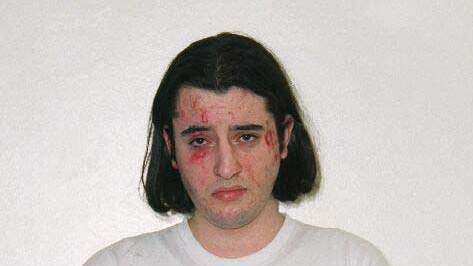 Great Britain deported last Wednesday a Moroccan cyber-Jihadist who had been arrested in 2005 and sentenced to a sixteen-year prison term for cyber-jihadist activities in 2007 but failed to inform Moroccan authorities that the inmate was very dangerous and can harm himself and others.
Great Britain deported last Wednesday a Moroccan cyber-Jihadist who had been arrested in 2005 and sentenced to a sixteen-year prison term for cyber-jihadist activities in 2007 but failed to inform Moroccan authorities that the inmate was very dangerous and can harm himself and others.
The Moroccan Interior Minister, Mohamed Hassad, got in touch with his British counterpart Theresa May to protest why London authorities have not informed their Moroccan counterparts about the danger posed by this individual before his deportation.
Actually, just one day after his return to Morocco, the deportee, Younes Tssouli, sparked a security scare.
On Thursday, he started a brawl with his family members criticizing them for being too liberal. Getting more and more edgy, he set fire to his parents’ house in capital city Rabat and escaped to the terrace of the building. From there he jumped over rooftops to reach the balcony of the nearby apartment of the Consul General of Great Britain in Rabat.
He stood on the edge of the balcony for hours, threatening to kill himself and refusing to surrender to the law enforcement forces called to the rescue.
It took several hours of negotiations, 13 hours according to the local media, before the police, assisted by a psychiatrist, brought him under control.
Tssouili’s arrest in Rabat had a new development as he told the policemen capturing him that he had been sexually abused and mistreated during his detention in Britain. He confirmed his statements during the hearing by the judicial police.
A communiqué released Friday by the Attorney General at the Rabat Court of Appeal said that Mr.Tssouli who alleged “he suffered abuse and sexual assaults during his incarceration in the UK will be submitted to medical examination to check the validity of his accusations.”
If the claims about the abuses are confirmed after medical examination, judicial proceedings shall be initiated and conveyed to the British Justice for investigations, said the communiqué.
Younes Tssouli had lived in London for nearly ten years before he was arrested and indicted in 2007 on the basis of the documents found on his computer. The charges included incitement to commit acts of terrorism on the internet, hacking of credit cards, creation of websites and forums supporting the Al-Qaeda terrorist organization among others.
